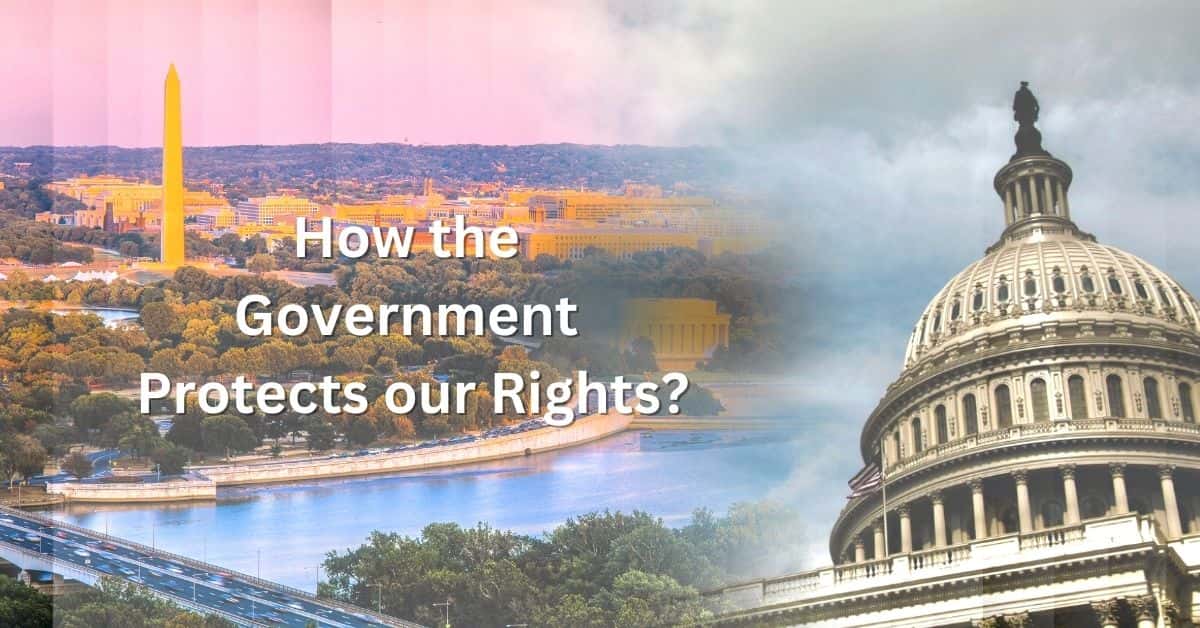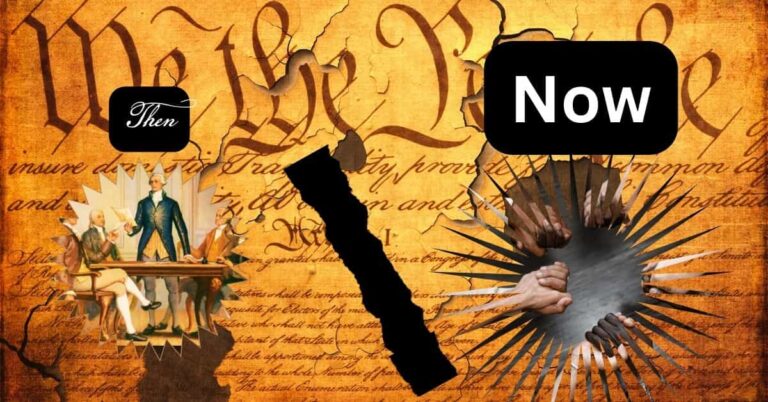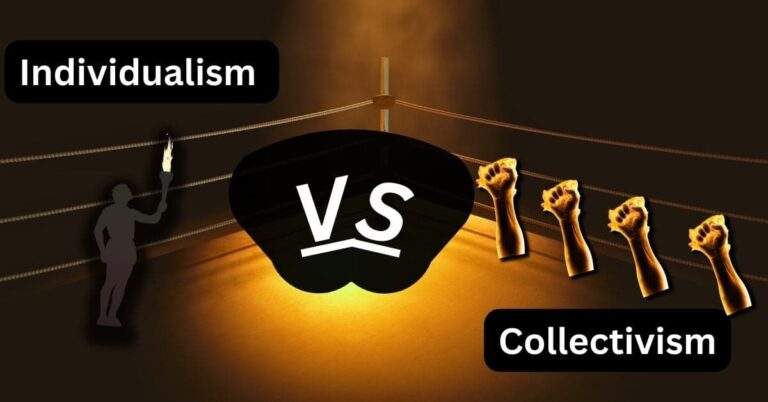You heard somewhere the government protected every aspect of your life. I’ll give you a hint. It ain’t going to happen. Do those slick TV politicians care about your liberties- or better known as rights? Strap in and find out.
The government protects your rights through legal action and oversight. They are the moderator in the day-to-day function of civil liberties. However, you are the ultimate guardian of your rights.
This is a tough concept to grasp. Citizens assume the government will be reliable and always there. Have federal authorities been helping as soon as dark hurricane skies clear?
We will explore the function of D.C. and how your rights have managed to survive so far.
Purpose of Government: The Truth about D.C.
Have you ever visited our nation’s capital? It is filled with majestic buildings and monuments. The beautiful buildings won’t protect your rights. Yet, the operations inside those structures are essential to you.
Government is a complicated machine filled with never-ending arrays of mazes and trap doors. I call D.C. a machine because it is a bureaucracy and mystery -even the great detective Sherlock Holmes couldn’t solve.
D.C. acts as the referee between the opposing team and you. In this case, the opposing team is an infringement on your rights.
Let’s use other familiar terms so I emphasize this point until you’re tired of reading about it. Government is:
- A moderator
- A referee
- An umpire
- Your parents listening to each side of an argument
- An authority figure
Above I mentioned terms displaying authority. Government is the powerful figure tasked with protecting your freedoms, rights, and liberties. You obtain a license to drive or practice law. That displays regulation and authority in action.
Deep Dive into Government
We will discuss the underlying principles regulating society. People voluntarily submit themselves to government’s authority.
Why is that?
They want the security they provide. More than your rights, you like stability. You have your life, liberty, and property secured.
Philosophers from Socrates to the Enlightenment attempted to explain this phenomenon. They named it “social contract theory“.
Social contract theory states you willingly submit to government’s laws and morals.
But what if the following happens:
- What occurs if you don’t agree with a law?
- What gives them the power to punish you?
- What develops if they don’t protect liberties, rights, and freedoms?
Here we question the legitimacy of this theory. If it took thousands of years for it to have a name, are we bound by this theory? Do they protect our rights?
In political philosophy, this is the method to justify the existence of government. Evil people attempt to undermine this principle. They state, “they don’t make bad laws.”
Tyrannical laws are passed. But we have a government system to combat tyranny disguised as a law. And that is the court system.
“We the People” Challenge the Status Quo
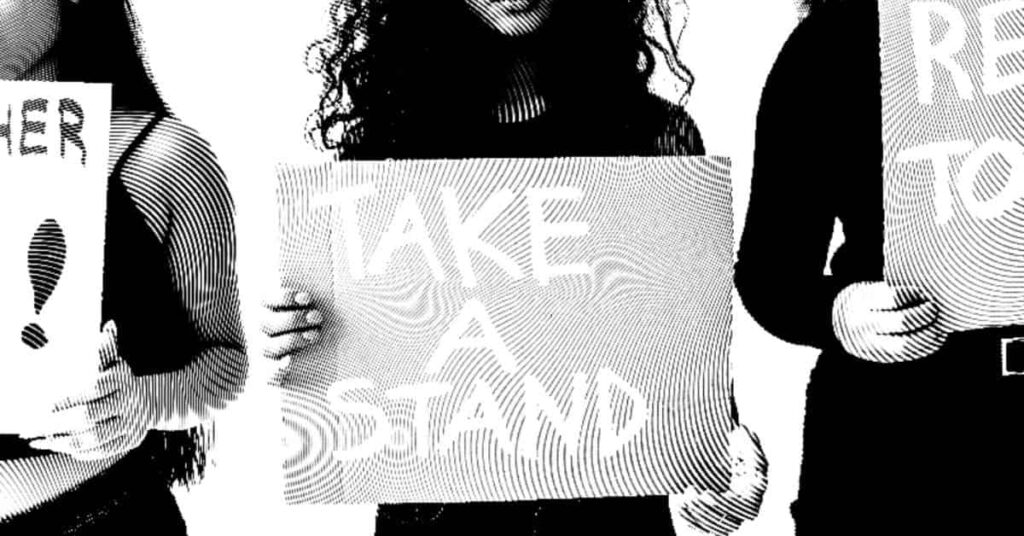
The courts are the referee. We must revert to that comparison again.
If you have an argument, who solves it? … A referee in some capacity.
“We the People” look to the government’s court system to solve our disputes and violations of our rights. Our courts are essential. Without them, any sort of fairness related to the laws wouldn’t exist.
They enforce due process, which is a fundamental right in the 5th amendment.
Involved with due process is judicial review– another tool used to safeguard rights.
Judicial Review- A Judge’s Power
Judicial Review isn’t cited in the Constitution. The justice system granted itself this controversial power in Marbury vs. Madison (1803). Yet, Article 3, Section 2 rationalizes this practice.
Judicial review is determining whether government’s actions are consistent with the Constitution.
Legal purists argue that declaring laws unconstitutional is the appellate court’s job. You understand the courts as protecting our rights by abolishing unconstitutional laws passed. Therefore, judicial review in short is declaring laws unconstitutional or constitutional.
Also, your perception of this practice determines its future use. We have accepted it without much hesitation. Because it defends our rights.
What happens when you have a judge that doesn’t agree with your right? They restrict your liberty stating, “This protection isn’t mentioned in the Bill of Rights.”
Sadly, this can happen and is part of the controversy. Judges are human and see the Constitution as a living document needing to change with the times.
The State Aids in Civil Rights
If you talked to your grandparents about life 100 years ago, they wouldn’t recognize civil rights today. This is another way government assured rights.
Civil rights are a way to protect the vulnerable. They are community-not individual rights. Think of this as a more ethical way of viewing the world.
You have understood civil rights as:
- Right to vote
- Right to a fair trial
But government passed legislation placing restrictions on businesses and organizations. These restrictions are for companies- not on you.
An example of these regulations include:
- Anti-discrimination laws
- Protects against
- Gender
- Creed
- Disability
- Sexual orientation
Without their help, these groups of people are susceptible to exploitation. They are at risk for economic or physical risk. These laws help diminish the danger.
If you want to LEARN MORE about your list of rights, read my article about rights not listed in the Constitution.
A Founding Father’s Interpretation
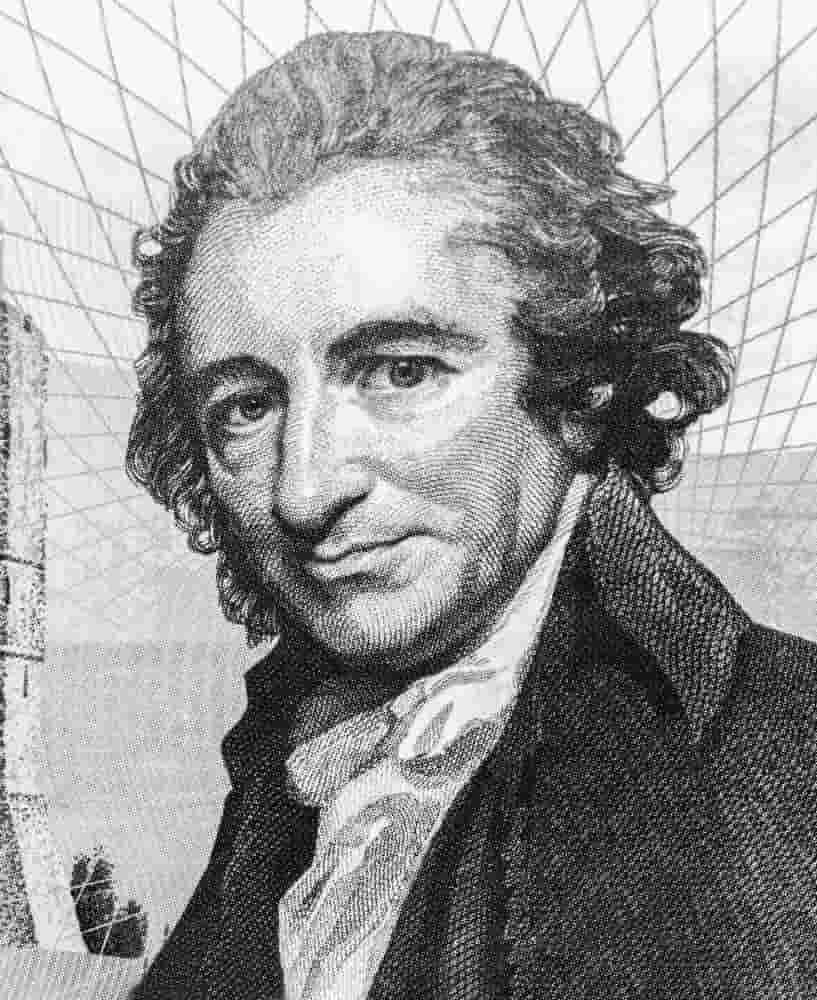
Thomas Paine is a household name for American Freedom. But, did you know he wrote a significant book on human rights? His book The Rights of Man discusses civil rights from an 18th-century perspective.
According to Paine, the government must provide protection for civil rights with laws as mentioned above.
Opponents of this viewpoint call it too much “coercion”. In short, you and I need their help for our own survival. Without it, these civil rights wouldn’t be guaranteed.
To our beloved Founder, civil rights share 3 distinct characteristics:
1. Natural Rights
These rights are inherent- meaning derived at birth.
2. Exist as a member of society
If you remember from above, political theory states you and I are obligated under a “social contract”. We haven’t signed any formal government document enforcing these rights. You gain them because you exist in society.
3. Can’t be enforced or protected on their own
You and I need the government’s defense. “We the People” give them certain powers since they’re the enforcer. One of those duties is making laws shielding its citizens from harmful intrusions. They safeguard your life, liberty, and the pursuit of happiness.
Conclusion
You came here seeking how the government protects your rights and liberties. Being without your rights is a scary thought- especially after long fights to acquire them.
We discussed how the government is the authority. Political theory acknowledges a “social contract” exists between citizens and government. People consent to be governed by the “Umpire of America”.
Our legal system is an important aspect of maintaining our rights. If someone violates your rights, the judicial system decides the infringement. They decide who, what, and how to correct the violation. Judicial review is a mechanism judges use to correct the wrong.
Legislation is another means to guard against infringements.
Thomas Paine emphasized civil rights as essential to society. They existed at birth and defended by laws.
Government protections are important. Yet, they require a knowledge of the methods used to safeguard them. “We the People” keep government honest. Without us to hold them accountable, those precautions are worthless.
How has the government personally protected your rights? Share some stories with me.
J. Liberty
We have our freedoms. But what do you do with them? LEARN MORE about ways to use your liberty.
Photo Credits:
© Polina Tankilevich via Canva.com
